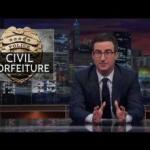OPINION
PER CURIAM.
The City appeals as of right from an order of no cause of action on the City's petition for forfeiture of claimants' property, pursuant to MCL 333.7521; MSA 14.15(7521). We affirm.
The City argues that the trial court ignored evidence that the property was subject to forfeiture because the purchase and improvement of the property was traceable to assets obtained from the sale of illegal drugs and that illegal drugs were sold on the property by claimants' son. See MCL 333.7521(1)(f); MSA 14.15(7521)(1)(f); In re Forfeiture of $ 18,000, 189 Mich. App. 1, 4; 471 N.W.2d 628 (1991). We disagree.
The findings of fact by a trial court sitting without a jury in a forfeiture proceeding will not be disturbed on appeal unless they are clearly erroneous. In re Forfeiture of $ 18,000, 189 Mich. App. at 4. A substantial connection must be established between the property and the criminal activity to justify forfeiture. Id., 5.
After comparing the evidence with the trial court's findings, we find no error. The evidence supported the court's findings that the property was purchased and improved with claimants' assets. Moreover, the court did not err in finding that claimants were innocent owners, despite evidence of drug trafficking at the property. The court determined that claimants provided a credible explanation as to ignorance of their son's illegal activities. The trial court explained that knowledge of illegal activity could not be attributed to the claimants' because their son is over thirty years old and activity on the property was not readily visible from the claimants' residence.
Finally, we reject the City's argument that claimants were not worthy of belief because they admitted to dishonesty in the past. A reviewing court defers to the trial court's determination of credibility because of its unique opportunity to see and hear the witnesses who testify at trial. Troyanowski v Village of Kent City, 175 Mich. App. 217; 437 N.W.2d 266 (1988). The trial court specifically found that despite the claimants' past indiscretions, they provided truthful testimony at trial.
Affirmed.
/s/ Roman S. Gribbs
/s/ Robert P. Young, Jr.
/s/ William J. Caprathe





